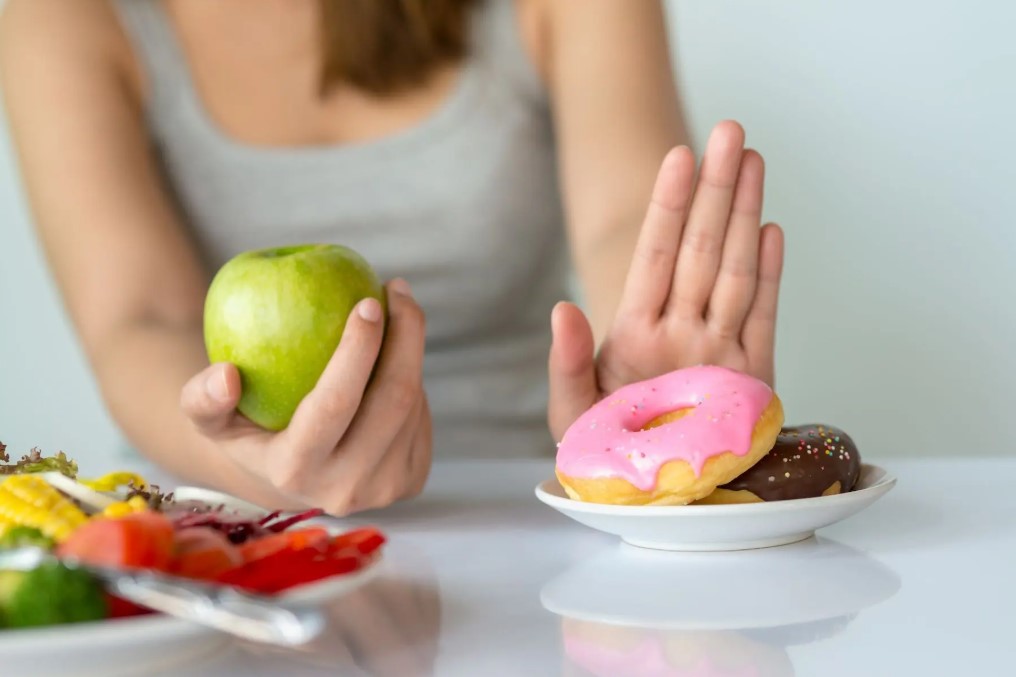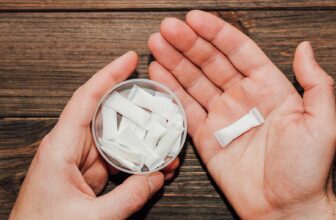
Ever wondered why a sweet treat sometimes leaves your mouth feeling far from fresh? Sugary snacks may seem innocent, but they create a perfect storm for bad breath. Let’s uncover why it happens and explore simple solutions to keep your breath fresh, clean, and confident.
Table of Contents
Why Sugary Snacks Create a Problem
Sugary snacks act like a buffet for bacteria in your mouth. These bacteria thrive on sugar, breaking it down into acid and other byproducts. This process encourages the growth of odor-causing bacteria and creates a perfect environment for bad odors to develop.
These are a couple of recommendations for how you can reduce the impact:
- Cut back on sugary treats, especially between meals.
- Opt for sugar-free alternatives when cravings strike.
- Pair sugary snacks with water to help rinse away residue.
Pro tip ─ If you can’t brush your teeth immediately after eating sweets, chewing sugar-free gum can stimulate saliva and reduce bacterial buildup.
Dry Mouth Makes It Worse
Saliva is your body’s natural defense against bad odors. It washes away bacteria, neutralizes acids, and prevents sugar from sticking to teeth. When your mouth becomes dry, sugar and bacteria have free rein to create unpleasant smells.
What can cause dry mouth:
- Dehydration due to lack of water intake.
- Medications that reduce saliva production.
- Stress or nervousness can temporarily dry out your mouth.
Here are a couple of practical tips:
- Drink water throughout the day to stay hydrated.
- Avoid caffeinated or alcoholic beverages, which worsen dryness.
- Use saliva-stimulating products like Flintts Mints to keep your mouth refreshed and hydrated.
Practical Tips for Fresher Breath
Bad breath isn’t just a dental issue—it can affect your confidence and social interactions. Tackling it doesn’t have to be complicated.
Daily habits for fresh breath:
- Brush and floss regularly ─ Remove food particles and bacteria that cause odors.
- Hydrate often ─ Water helps rinse away sugars and promotes saliva production.
- Use freshness boosters ─ Products like Flintts Mints can provide an instant refresh.
Pro tips:
- Replace your toothbrush every three months to ensure effective cleaning.
- Brush your tongue to remove bacteria trapped on its surface.
- Carry a small dental hygiene kit for touch-ups during the day.
Lesser-Known Causes of Bad Breath
Sometimes, bad breath stems from unexpected sources beyond sugary snacks. Addressing these issues can make a big difference in your oral hygiene.
Surprising causes:
- Acid reflux ─ Stomach acid can carry unpleasant smells into your mouth.
- High-protein diets ─ Excess protein feeds certain bacteria, increasing odors.
- Dental appliances ─ Poorly cleaned dentures or retainers harbor bacteria.
Practical examples:
- If acid reflux is an issue, try eating smaller meals and avoiding late-night snacking.
- Clean dentures thoroughly with antibacterial solutions daily.
- Balance your protein intake with fresh vegetables to minimize odor-causing bacteria.

Source: roswellpark.org
Why Oral Hygiene Is Essential
Good oral hygiene goes beyond keeping your teeth white—it directly impacts how fresh your breath smells. Neglecting basic habits gives bacteria an opportunity to multiply and produce sulfur compounds.
How to build a hygiene routine:
- Brush your teeth twice daily using fluoride toothpaste.
- Floss after meals to remove debris from between your teeth.
- Use a tongue scraper to eliminate bacteria on your tongue.
Pro tip: Incorporate an alcohol-free mouthwash to target hard-to-reach areas and maintain a balanced oral microbiome.
The Social Side of Fresh Breath
Imagine walking into a meeting, date, or social event with confidence, knowing your breath is fresh and inviting. Small adjustments to your routine can make a big difference in how others perceive you.
Benefits beyond oral health:
- Improved confidence in social and professional settings.
- Better communication without fear of bad odors.
- Enhanced overall self-care and hygiene habits.
Practical examples:
- Before an important event, chew sugar-free gum or use Flintts Mints for a quick refresh.
- Plan your meals with odor-neutral foods when you know you’ll be socializing.

Source: lovettdentistrybeaumont.com
Conclusion
Sugary snacks fuel bacteria that cause bad breath, but the solutions are simple. Focus on hydration, oral hygiene, and incorporating fresh options into your daily routine.
Whether you’re at work, on a date, or just enjoying time with friends, confidence begins with fresh breath. A little effort goes a long way in making sure your breath smells as great as you feel.








